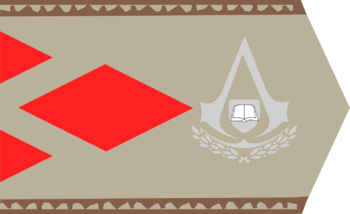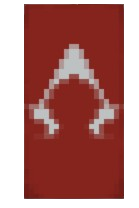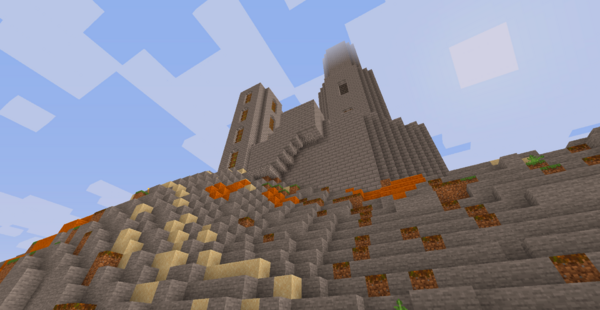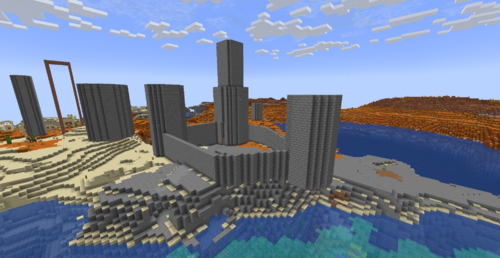Aurora:Alamut: Difference between revisions
zatderpscout (talk | contribs) No edit summary |
zatderpscout (talk | contribs) mNo edit summary |
||
| Line 17: | Line 17: | ||
Alamut was founded by ZatDerpScout420 on the 14th of January, 2024. It is a mountainside fortress located just east of New Orthinia. The settlement is meant to be a recreation of the real-life castle of Alamut that existed from 865 to 1256, serving as the headquarters for the Persian Order of Assassins, or the Hashashin group as they were known then, who themselves operated between 1090 and 1275. The fortress was destroyed by Hülëgu Khan of the Ilkhanate in 1256, but it also serves an important role in the video game series: Assassin’s Creed. The design of the fortress in the server is heavily inspired by its appearance in the game Assassin’s Creed Mirage, whilst also taking elements from Masyaf castle, which appeared in both Assassin’s Creed and Assassin’s Creed Revelations. It is made up of 20 chunks. Its location was specifically chosen to be in the same general area where the real fortress of Alamut once stood, in what is now the Qazvin province of Iran. Nothing but the foundation of the fortress remains today, so whatever its design truly was is up to interpretation. The flag of the town is inspired by the banners found in Assassin's Creed Mirage: | Alamut was founded by ZatDerpScout420 on the 14th of January, 2024. It is a mountainside fortress located just east of New Orthinia. The settlement is meant to be a recreation of the real-life castle of Alamut that existed from 865 to 1256, serving as the headquarters for the Persian Order of Assassins, or the Hashashin group as they were known then, who themselves operated between 1090 and 1275. The fortress was destroyed by Hülëgu Khan of the Ilkhanate in 1256, but it also serves an important role in the video game series: Assassin’s Creed. The design of the fortress in the server is heavily inspired by its appearance in the game Assassin’s Creed Mirage, whilst also taking elements from Masyaf castle, which appeared in both Assassin’s Creed and Assassin’s Creed Revelations. It is made up of 20 chunks. Its location was specifically chosen to be in the same general area where the real fortress of Alamut once stood, in what is now the Qazvin province of Iran. Nothing but the foundation of the fortress remains today, so whatever its design truly was is up to interpretation. The flag of the town is inspired by the banners found in Assassin's Creed Mirage: | ||
[[File:MirageAlamutBanner.png|100px]] | [[File:MirageAlamutBanner.png|100px]] | ||
Despite the geographic location in the server, the town is not within the grounds of the Frontier district, but instead, it is the furthest eastern settlement of the Capitol district and part of the greater New Orthinian metropolitan area. | Despite the geographic location in the server, the town is not within the grounds of the Frontier district, but instead, it is the furthest eastern settlement of the Capitol district and part of the greater New Orthinian metropolitan area. | ||
Whilst Alamut is a town, it is more of an outpost than anything. As such, it is not open to the public except for Caspian leadership, the mayor, and members of the Hidden Ones. With that said though, the mayor can invite guests to the fortress. The fortress is currently undergoing reconstruction. It’s redesign will look something like this: | Whilst Alamut is a town, it is more of an outpost than anything. As such, it is not open to the public except for Caspian leadership, the mayor, and members of the Hidden Ones. With that said though, the mayor can invite guests to the fortress. The fortress is currently undergoing reconstruction. It’s redesign will look something like this: | ||
Revision as of 23:36, 20 April 2024
| ||||||||||||||||||||||||
Alamut was founded by ZatDerpScout420 on the 14th of January, 2024. It is a mountainside fortress located just east of New Orthinia. The settlement is meant to be a recreation of the real-life castle of Alamut that existed from 865 to 1256, serving as the headquarters for the Persian Order of Assassins, or the Hashashin group as they were known then, who themselves operated between 1090 and 1275. The fortress was destroyed by Hülëgu Khan of the Ilkhanate in 1256, but it also serves an important role in the video game series: Assassin’s Creed. The design of the fortress in the server is heavily inspired by its appearance in the game Assassin’s Creed Mirage, whilst also taking elements from Masyaf castle, which appeared in both Assassin’s Creed and Assassin’s Creed Revelations. It is made up of 20 chunks. Its location was specifically chosen to be in the same general area where the real fortress of Alamut once stood, in what is now the Qazvin province of Iran. Nothing but the foundation of the fortress remains today, so whatever its design truly was is up to interpretation. The flag of the town is inspired by the banners found in Assassin's Creed Mirage:
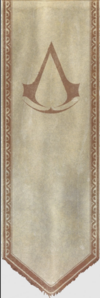
Despite the geographic location in the server, the town is not within the grounds of the Frontier district, but instead, it is the furthest eastern settlement of the Capitol district and part of the greater New Orthinian metropolitan area. Whilst Alamut is a town, it is more of an outpost than anything. As such, it is not open to the public except for Caspian leadership, the mayor, and members of the Hidden Ones. With that said though, the mayor can invite guests to the fortress. The fortress is currently undergoing reconstruction. It’s redesign will look something like this:
The Hidden Ones are a grassroots group based within Alamut, with a bureau in New Orthinia. The group was founded not long after Alamut was established. Their values consist of knowledge conservation, record-keeping, defense, and intelligence purposes. Unlike the Hidden Ones of the Assassin’s Creed games, there are no templars to combat nor are assassinations feasible, given that any potential targets can just respawn. So, their goals have shifted as such. Requirements to join are light, whilst being familiar with/a fan of Assassin’s Creed is not required, it is highly encouraged.
